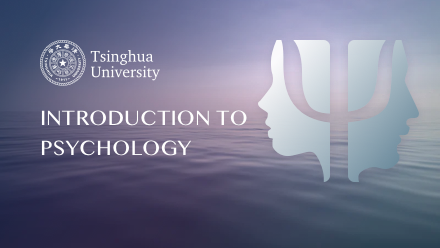
当前课程知识点:Introduction to Psychology > Lesson 4 Cognition and Culture > Creative thinking(1) > Creative thinking(1)
返回《Introduction to Psychology》慕课在线视频课程列表
返回《Introduction to Psychology》慕课在线视频列表
人类最伟大的思维活动
还不是问题解决
主要的还是我们的创造思维
创造思维
让我们能够想象 设计 生产
创作出我们以前生活中间
经验中间
没有存在的形象
事物
方法
我们清华大学心理学系行为与大数据实验室
对两百年以来人类关注的问题
进行了大规模的数据分析和计算
我们发现从20世纪末期开始
创造就成为人类思想交流中最常见的词语之一
这种创造可以是伟大的创造
所以叫做大C(big creativity)
也可以是日常生活中的创造
我们把它叫做(little C)
或者叫做小C
伟大的创造来自于伟大的业绩
伟大的贡献
伟大的影响
但是生活中间小的创造
同样的有意义 有价值
心理学家对于创造的问题如此感兴趣
不光是因为它让我们着迷
让我们敬畏更主要的是它能够解决
我们人类21世纪面对的很多的问题
如何解决环境的问题
资源困境的问题
经济转型的问题
尤其是我们中国进入到一个新的时代
经济转型的时代
我们以前一直是老老实实地学别人
但是在21世纪
当我们已经成为世界的大国的时候
我们一定要做老师
老师就得有原创
老师就得有创造
那么创造有什么样的心理的表现
心理的特点
心理的要求呢
我们认为创造的研究
主要是由四个问题
叫做四个P
第一 Personality
也就是有创造才华的人他到底有什么样的特点
换句话说什么样的人能够做出创造性的工作
第二个P叫 Product
产品
什么样的产品它有创造精神
它有创新能力
我们现在的文化产业投资
需要对很多的报告
很多的方案进行分析
大部分的分析
停留在经验的分析基础之上
那么如何判断这个方案有创新精神
也就是如何判断这个产品
它有创新的特性
这也是心理学家关心的很重要的问题
创造的过程
特别是创造思维的过程
它是有什么样的特色
有什么样的规律
有什么样的表现形式
有什么样的调节的方法
创造的地方
叫做第四个P Place
什么样的环境
什么样的条件
什么样的组织结构
更加利于创造
更加利于创新
中国著名的科学家钱学森先生
曾经语重心长地询问
为什么中国的大学培养不出一流的科学家
可以获得诺贝尔科学奖的国际大师
这个问题
不光是教育的问题
很大程度上也是心理的问题
我们要从创造性的人格
创造性的产品
创造性的思维过程
和创造性的文化组织来分析 来理解
创造性的人才有什么特点呢
像爱因斯坦
莫扎特
贝多芬
这样的优秀的人才
他们的思维方式
行为方式和心理活动
有什么样的特色
人类对创造人才的关注和崇拜和着迷
让我们提出很多有意义的理论
弗洛伊德认为人类的创造力
来自于无意识的冲动的结果
所以创新人才的人一定是有一些神奇的
与众不同的
不一样的地方
著名心理学家艾森克
曾经研究过创造力人才的人格特点
他发现这些人往往具有一些
不一样的人格特性
他发现具有艺术创造人才的人
幻想多 想象多
冲动多 理想少
情感错乱 心理变态
情感的敏感性强
狂躁 易表露
焦虑 有内驱力
但是也有抱负
往往对准则有怀疑
不遵从
敌意 冷漠
不友好 不太热情
严重的内向
这样的分析
反映了弗洛伊德精神分析理论的影响
心理学家吉尔福德认为
创造性人才不应该如此的冷漠 奇怪
他一定还有其他的一些人格特性
经过多年的追踪研究
他发现创造性人才
其实还有很多积极的人格特点
他包括高度的自觉性和独立性
不肯雷同 不肯随波逐流
有旺盛的求知欲望
对新的事物充满了好奇
对事物的运动的机理有深刻探究的动机
知识面极其广泛
善于观察
工作中讲究条理
准备很严格
有丰富的想象力
敏锐 直觉
特别喜欢抽象思维
对智力活动与游戏有广泛的兴趣
特别明显的是有卓越的文艺天分和幽默感
意志品质出众
能够长期地关注某件事情
排除外界的干扰
最近的神经心理研究
还发现爱因斯坦的卓越
其实不在于他的大脑结构与我们大家有什么不一样
普林斯顿大学的神经心理学家把爱因斯坦的大脑
分割成240片
进行解剖学的分析
他们发现除了左半球第39区
爱因斯坦的神经细胞与胶质细胞的比例
比其他科学家
比其他普通人群这个比例要小以外
其他方面
其实没有特别大的差别
这个比例反映的就是大脑新陈代谢的比例
也就是说爱因斯坦的大脑与我们不同的地方
是他用得比较多
新陈代谢比较快
-That is not psychology!
-Research domain of psychology
--Research domain of psychology
-what is psychology
-Research Methods
-Survey data collection and social desirability
--Survey data collection and social desirability
-Experiment design
-Ethical issue
-Homework
-history of psychology
-Homework
-What is sensation
-Researches of sensation
-Perception(1)
-Perception(2)
-Homework
-What is cognition
-Imagination
-Problem solving
-Attributes of problem solving
--Attributes of problem solving
-Creative thinking(1)
-Creative thinking (2)
-Homework
-The concept of consciousness
--The concept of consciousness
-Nature of consciousness
-Forms of consciousness
-Self efficacy theory
-The concept of self - consciousness
--The concept of self - consciousness
-Cross cultural difference
-Self- consciousness regulation
--Self- consciousness regulation
-Homework
-What is language
-Language and culture
-What is communication
-Non-linguistic communication
--Non-linguistic communication
-Communication style
-Homework
-What is emotion?
-The research of emotion(1)
-The research of emotion(2)
-Cross-culture emotion
-Emotional Intelligence
-Homework
-What is social psychology
-Social cognition
-Attitude
--Attitude
-Group
--Group
-Conformist mentality
-Social connection
-Homework
-What is cultural psychology
-Research of cultural psychology(1)
--Research of cultural psychology(1)
-Research of cultural psychology(2)
--Research of cultural psychology(2)
-Homework
-Mental differences
-Intelligence
-Personality
-Personal value
-Homework
-Learning
--Learning
-Stimulate and response
-Punish and reinforcement
-Memory
--Memory
-Enhance your memory
-What is positive psychology
-What is happiness
-Positive thinking
-Be positive




